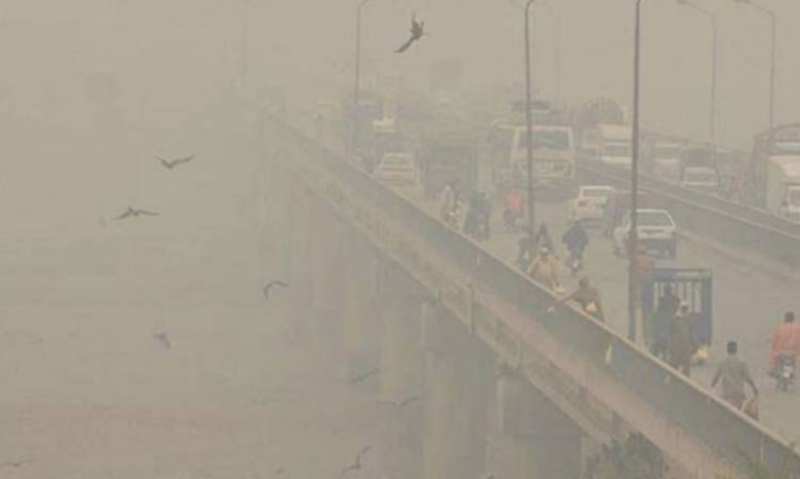Islamabad/New York (Web Desk): The United Nations International Children's Emergency Fund (UNICEF) has raised an alarming warning about the dangerous levels of air pollution currently affecting Pakistan’s Punjab province, with more than 11 million children under the age of five at significant risk.
The UN agency reports that air quality levels in Lahore and surrounding districts have reached record-breaking levels this past week, surpassing the World Health Organization's (WHO) safety guidelines by over 100 times.
In a statement released from Islamabad and New York on Monday, UNICEF described the crisis as critical, noting that hundreds of individuals, including many children, have been hospitalized due to smog-related illnesses.
The pollution is so severe that it is visible from space, underscoring the extent of the environmental hazard.
Abdullah Fadil, UNICEF’s representative in Pakistan, expressed deep concern for the health of young children, stating, “As smog continues to blanket Punjab, my greatest worry is for the health and well-being of young children who are forced to breathe toxic, polluted air.”
He called for immediate action to reduce the pollution levels and protect children's health. Fadil also pointed out that, even before these record-breaking pollution levels, approximately 12% of child deaths under five in Pakistan were already attributed to air pollution.
“While the full impact of this year’s unprecedented smog will take time to measure, it’s clear that the dramatic increase in pollution will have severe consequences, particularly for children and pregnant women,” Fadil added.
In response to the smog crisis, the provincial government in Punjab has ordered the closure of schools in the hardest-hit areas until mid-November.
This precautionary measure aims to reduce children’s exposure to the dangerous air, particularly during the morning hours when pollution levels are at their highest. Along with the school closures, visits to parks, zoos, and other outdoor spaces have been prohibited until November 17.
The government has also implemented a "green lockdown" in Lahore, mandating that residents wear face masks and that 50% of employees work remotely.
The city has also banned unfiltered barbecuing at restaurants and imposed a 10 p.m. curfew for wedding halls in an effort to limit pollution sources.
UNICEF estimates that nearly 16 million children in Punjab have had their education disrupted by the current air crisis.
Fadil emphasized that Pakistan is already facing a dire education emergency, with over 26 million children out of school, and cannot afford further losses in learning. “Every child has the right to clean air,” he said, stressing that both children’s health and education must be prioritized. “The government must take immediate steps to protect these fundamental rights.”
In addition to immediate measures, UNICEF is calling for long-term solutions to tackle the root causes of the pollution.
These include reducing emissions from industries and agriculture, promoting clean energy, and encouraging sustainable transportation practices.
These measures are critical not only for addressing climate change but also for ensuring a healthier future for the next generation.
As world leaders gather for the 2024 UN Climate Conference (COP29) in Azerbaijan, Fadil called the event a “crucial opportunity” to transform words into action.
With Pakistan’s Prime Minister Shehbaz Sharif among the leaders in attendance, COP29 is expected to focus on climate adaptation and disaster preparedness, with developing countries, including Pakistan, calling for increased support to address the fallout from extreme weather events.
Fadil concluded by urging immediate global action: “We cannot let our children breathe toxic air. We cannot allow their health, education, and future to be compromised. For the sake of our children, and their future, we must act now.”


